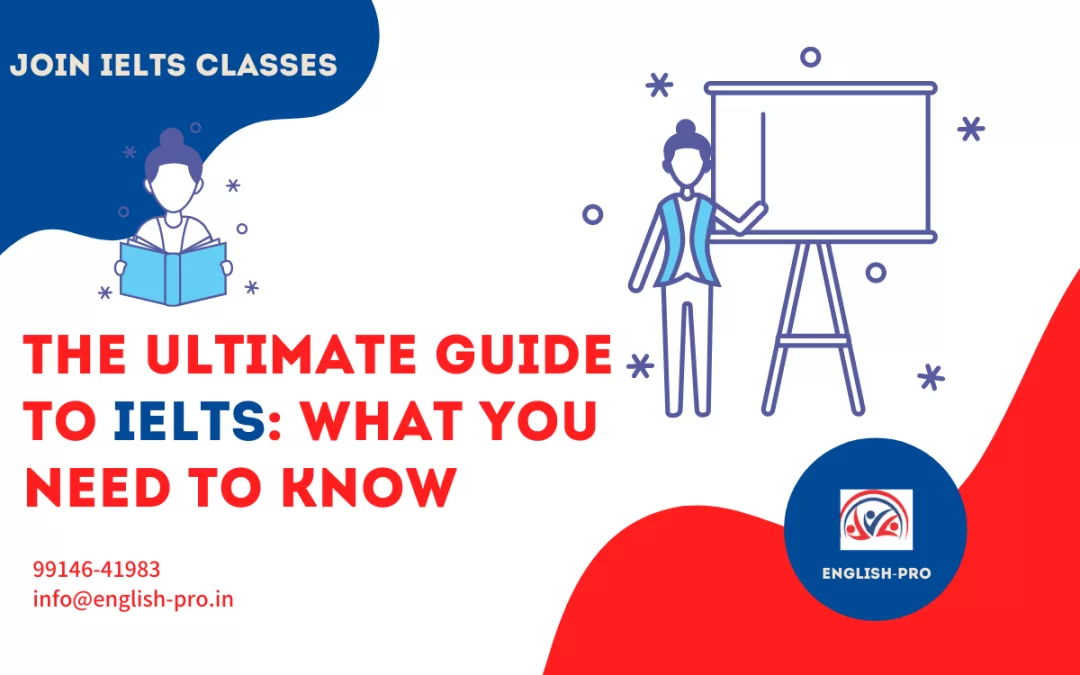International English Language Testing System tests a person’s ability to listen, read, speak, and write the English language. IELTS is recognized by more than 3,000 academic institutions in Australia, Britain, Canada, Europe, Ireland, and New Zealand. UK Visas and Immigration (UKVI) considers this exam as the English speaking proficiency of people applying in the UK.
There is no minimum score needed to clear the IELTS test. IELTS is a test to check a person’s English Speaking, Writing, and Listening abilities. IELTS coaching in Chandigarh makes people capable of getting the desired score and crack IELTS with flying colors.
There are two modules of the IELTS:
Academic Module: This is for those who seek admission in universities and for professionals who want to practice in an English-speaking nation.
General Training Module: People who want to undertake non-academic training or work abroad prefer a general training module.
IELTS test consists of the following parts:
Listening:
The module consists of four parts, with each section having ten questions. Section 1 includes a conversation about social activities. In section 2, aspirants witness a person speaking about local facilities. As far as Section 3 of this module is concerned, there is a discussion between two speakers. Section 4 has one individual who talks about an academic subject.
Every section starts with a brief introduction telling aspirants about the situation. In Section 4, a person talks about an academic topic. They then have some time to discuss the issues. The questions are in the same order as the documenting material, so the answer to the first question is before the answer to the second question, and so forth. There is a break in the middle of the first three parts to allow participants to check the remaining questions. Each section is only heard once. The students are given 10 minutes at the end of the test to pass their answers to a reply sheet. Test takers for wrong spelling and grammar would lose points.
Reading:
The Reading section consists of three parts and a total of 2,150-2,750 words of text. There will be a number of questions, including short-answers questions, MCQs, material identification, labeling diagrams, and text/sentence ends matching material/headings/features. When writing down their responses, aspirants need to be vigilant because any incorrect spelling will lead to losing marks. Both of the subjects are of general interest to undergraduate or postgraduate level students.
Writing:
The Writing Paper has two tasks and both must be done. The first task includes writing 150 words within 20 minutes. In the second task, aspirants are given 40 minutes to write around 250 words. Make sure to write something that relates to the subject. Beating around the bush will only lead to being penalized. Answers in complete sentences should be posted. Notes or bullet points must not be used by test takers.
Speaking:
This module includes a face-to-face interview with an interviewer. The speech test is composed of three parts.
Section 1: Interview and Presentation (4–5 minutes). In the speaking module, an examiner may ask about interests, family, hobbies, studies, family, and some other general subjects.
Section 2: Extended turn (3–4 minutes). A task card is given to test takers about a given subject. Participants can take one minute to prepare for the given subject. The task card describes the points to be included in the talk and one part of the subject that must be clarified during the talk. Thereafter, participants need to talk on the subject for 2 minutes, after which the examiner can some questions.
Section 3: (4-5 minutes) Conversations. The third section includes a discussion with the examiner, generally on the theme-related questions already discussed in section 2.
Scoring: For each test part, aspirants receive a score (writing, reading, speaking, and listening). To obtain an Overall Band Ranking, the individual scores are then summed and rounded.Band scale: On a nine-band scale, the IELTS score is given, with each band corresponding to a specified English competence. Hordes of people join English speaking course in Chandigarh to get support, guidance, and required knowledge to clear the test.


Recent Comments